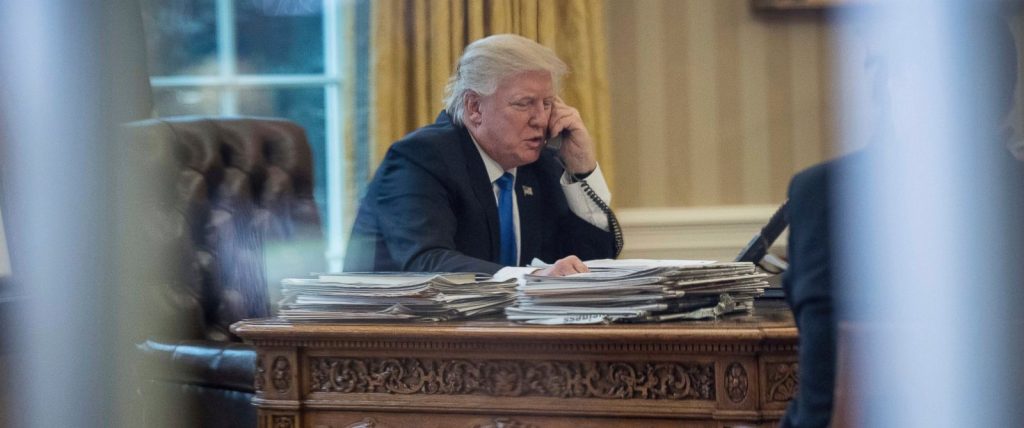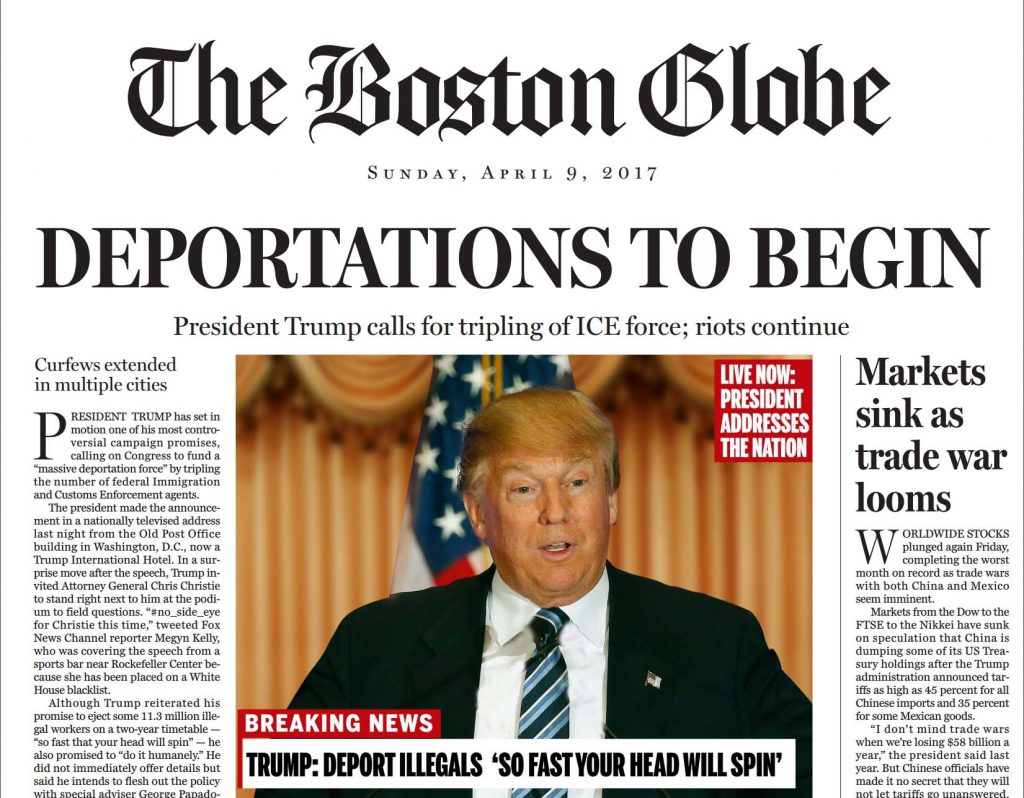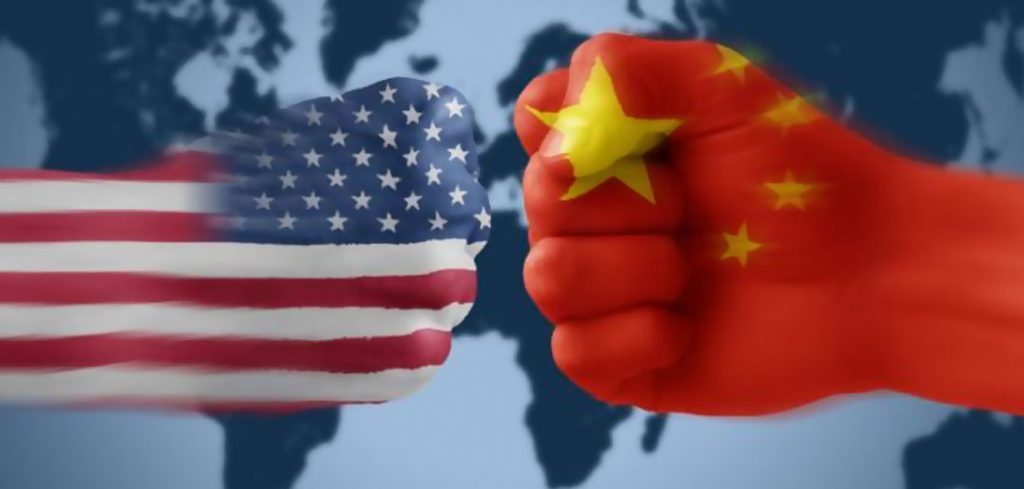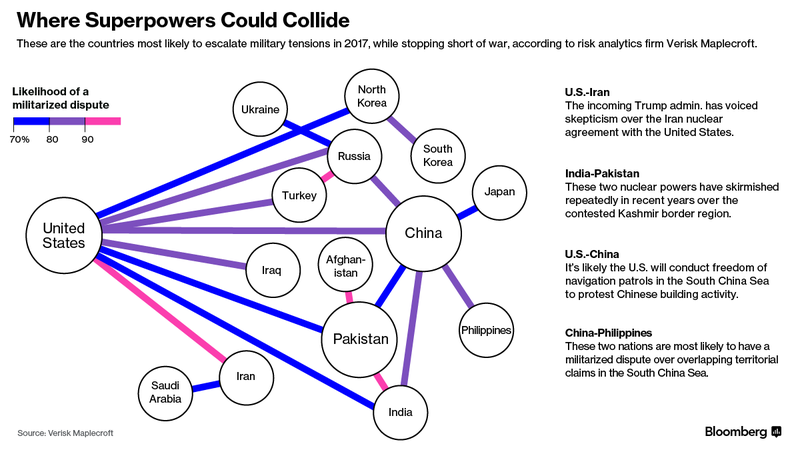- GOLD IRA
- Download Our 2024 Precious Metals IRA Investor’s Guide.
Click Here  Gold IRA
Gold IRA
 Investing
Investing
-
- CRYPTO IRA
- PRICES & STATS
- RETIREMENT PLANS
- BLOG
 Questions? Call (888) 820 1042
Questions? Call (888) 820 1042
International Shock As President Trump Remakes the World in His “America First” Image
Disclosure: Our content does not constitute financial advice. Speak to your financial advisor. We may earn money from companies reviewed. Learn more
Last Updated on: 30th January 2017, 02:08 pm

This past week and weekend saw the fast-paced implementation of several controversial executive orders from new U.S. President Donald Trump. One of them centered on starting to build the wall in Mexico, while a later Friday one concerned stopping immigrants from 7 Muslim nations from entering the United States for the next four months. European and other world leader reactions have been swift and mostly negative, with the notable exception of long standing American ally Israel and its Prime Minister Benjamin Netanyahu, who supports the wall.
Not only has this policy divided Americans opinions down the middle, it has begun to affect American multinational companies who have workers from a number of different countries that are on the list of banned nations including Iran, Iraq, Syria, Yemen, Somalia, Libya, and the Sudan. Refugees from Syria are banned from entering American territory indefinitely.
As part of these protectionist policies, the first shots in an increasingly likely trade war between the U.S. and Mexico and/or America and China have been fired. Security analysts are already weighing in on the higher chances of one of these trade wars potentially breaking into armed conflict, especially in the South China Sea.
Yet despite all of this geopolitical instability and chaos, the DJIA, Nasdaq, and S&P 500 all made new all time highs. All of these are reasons why you need to include gold in your IRA and retirement accounts.
President Trump's New Immigration Policy Seizes World Center Stage
Just ahead of the weekend, President Trump roiled the international travel systems and plans of thousands of individuals who were traveling to the United States by issuing a powerful executive order which erects strict new barriers to those individuals coming to the country from seven different overwhelmingly Islamic nations. When the policy began to be implemented over the weekend, confusion in the interpretation of the order meant that customs officials were detaining not only refugees and visa holders, but also permanent residents holding U.S. green cards.
The situation caused significant global protests in airports across the United States and throughout Europe. It began to improve somewhat when the new Secretary of Homeland Security John Kelly released a statement which said the entry of U.S. green card holders was within the nation's interest. Secretary Kelly stated:
These individuals will be allowed back in the country unless there is significant evidence showing that they pose “a serious threat to public safety and welfare.”
A close Trump adviser and friend Tom Barrack explained that this particular immigration order serves two different purposes. On the one hand, it is intended to keep out potential terrorists by making it difficult (if not nearly impossible) to enter the U.S. from countries which have lax control over their own borders.
On the other hand, it signals to the bigger Middle Eastern world that the nations there must gain control of their own problems so that the continuous tidal wave of refugees is no longer a pressuring tactic utilized as a bargaining chip with the developed nations of the Western World.

While the intentions of the order are clear, the policy nonetheless spurred a worldwide backlash all weekend long. U.S. allies from Germany to Canada, to the United Kingdom condemned the new policy while the mega international and American corporations warned that it was already posing a problem with the incredibly important freely flowing commerce and workers.
Despite the global opposition from leaders ranging from Germany's Angela Merkel to Canada's Prime Minister Justin Trudeau, President Trump firmly stood his ground. He released several statements in which he compared the executive order on immigration to several others which previous President Barack Obama issued. Opponents of the controversial new policy decried his decision to restrict entry to the country as a tool to fight terrorism.
Airports decided to be safe throughout Europe. In both London and Amsterdam, any U.S. bound passengers hailing from any of the seven nations on the list were simply refused boarding. Over 100 individuals were detained over the weekend in the U.S. upon arriving. Some of them were let go after several judges intervened throughout the U.S.
American Businesses Impacted by New Immigration Restrictions
As the dust was still settling from the initial international outrage over the new immigration restrictions, multinational companies began to realize the imminent implications for their businesses from the new policy. There were some initial spurts of frustration and outbursts from a few of the leaders in the American technology sector, including Apple Chief Tim Cook, Tesla head Elon Musk, and Facebook founder Mark Zuckerberg before the CEO's of other segments ranging from car manufacturing to finance began to wrestle with the future impact of the order. GE CEO Jeff Immelt wrote in an email GE has:
“many employees from the named countries” and they are “critical to our success and they are our friends and partners.” We will “continue to make our voice heard with the new administration.”
Starbucks CEO Howard Schultz took his response a step further by announcing his intention to hire around 10,000 refugees in their stores throughout the world over the next five years. Microsoft's Satya Nadella wrote on the corporation's LinkedIn social media highlighting :
“the positive impact that immigration has on our company, for the country, for the world.”
Google has begun recalling some of its international employees back to the United States as a result of the new policy. Yet President Trump also had a point in a move he had long ago promised to the people who elected him. His Sunday statement declared:
“This is not about religion– this is about terror and keeping our country safe. There are over 40 different countries worldwide that are majority Muslim that are not affected by this order.”
The executive order on Friday actually mandated a ninety day entry freeze on any citizens from the seven nations of Iran, Iraq, Syria, Yemen, Somalia, Libya, and the Sudan. Refugees from any nation will be suspended the next hundred and twenty days while an effective mechanism is set up to more thoroughly vet them.
U.S. Administration Fires the First Shots in the Potentially Imminent Trade War
Since the election and inauguration of President Trump, many observers who are both economic and political by trade have warned of the increasing likelihood of a potential one or more trade wars breaking out between the United States and rival or even allied countries. Rivals on the list of possible targets include China, while allied nations include Mexico.
The situation with Mexico moved a step closer to a renegotiation of NAFTA and possible trade war as Trump signed an executive order which begins the construction of the long-promised border wall along the 2,000 miles with Mexico. This began a spat with Mexican President Nieto who refused to pay for the wall and then cancelled his trip to Washington D.C. to meet with the new American President in response to a Trump tweet suggesting he do so.
Legendary bond trader, market commentator, and financial author Mohamed El-Erian wrote about Trump's new economic protectionist policies in a piece for Bloomberg View:
“This approach seemingly also extends to a willingness to depart from long-established rules and practices governing cross-border relationships — from talking down the dollar and withdrawing from the Trans-Pacific Partnership to threatening to dismantle the North American Free Trade Agreement and to impose tariffs that would be inconsistent with commitments under the World Trade Organization. In the process, and as part of a negotiating strategy with other countries, the administration is signalling its willingness to question and upend, if necessary, deeply ingrained principles of international economic management.”
All of these trade spats also have the serious potential to spill over into military conflict. While it is unlikely the U.S. and Mexico will reprise the Mexican-American War of the mid 1800s, armed conflagrations could easily break out between increasingly antagonistic superpower China and the United States.

China may only cringe for now at the threats of 20-30 percent tariffs being placed on their exports to America, but they have taken the new administration's increasingly friendly and sovereign overtures to Taiwan personally. The Chinese government has recently reaffirmed their decades old concept that the One-China Policy with Taiwan is such a core national interest that China will go to war over it with whomever stands in their way. Verisk Maplecroft's Head of Analytics Guy Bailey stated:
“While militarized disputes have the potential to bubble over into something bigger, the overwhelming majority of clashes quickly simmer down.”

Dow Jones Quietly Makes New All Time High Amidst the International Drama
Meanwhile, as the world was roiled by the beginning of the new “America First” order President Trump and his policies have heralded, Wall Street also enjoyed a historic moment. This past Wednesday, the Dow Jones Industrial Average surpassed the 20,000 marker for the first time ever in its long and turbulent 120 year existence. The DJIA leapt 155.80 points higher to overturn the once-impossible seeming milestone and close at a new high of 20,068.51. It reached 20,082 at one point before the close. Nasdaq and the S&P 500 also closed at their historic highs.
Irrational exuberance appears to be back in vogue. The world is more chaotic and on the brink of potentially upending global conflicts than it has been in literally decades. Do not let anyone talk you out of your gold IRA allocation strategies.



 Silver
Silver Gold
Gold Platinum
Platinum Palladium
Palladium Bitcoin
Bitcoin Ethereum
Ethereum

 Gold: $2,387.15
Gold: $2,387.15
 Silver: $27.92
Silver: $27.92
 Platinum: $931.67
Platinum: $931.67
 Palladium: $903.43
Palladium: $903.43
 Bitcoin: $67,909.13
Bitcoin: $67,909.13
 Ethereum: $3,254.68
Ethereum: $3,254.68